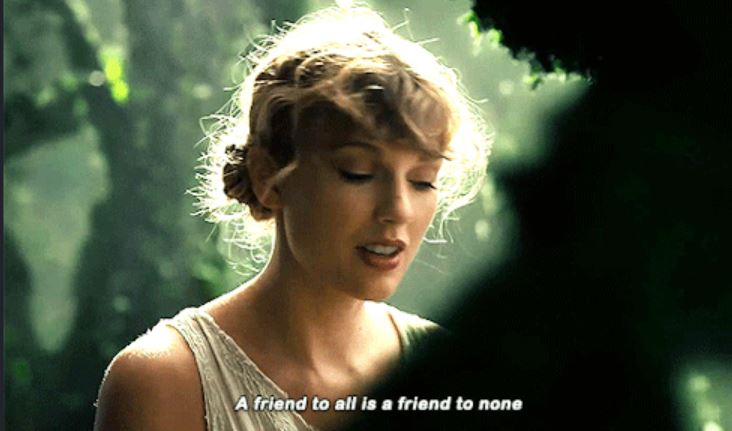Thinking of Starting a Podcast? Think About This Stuff First
When launching a podcast — as with so many things — the hardest part is often knowing where to start.
If you have a gut feeling that a show is the best way to engage with your customers and forge a more personal relationship with them (and reader, we have the data to back that gut feeling up), then you might feel overwhelmed by the sheer volume of angles and premises your show could take.
If your goal is to make your audience’s favorite show (and since you’re here, we’ll assume that it is), then your primary objective should be to say something that matters. That can feel like a lofty goal. It can make you feel like you have to say something huge — something industry-defining, which will appeal to all the personas you’re targeting.
But…you don’t.
You just need to say something that matters to the people most likely to love your show.
This is why the podcasts with the most interesting premises (and the most devoted followings) are typically not podcasts about “industry trends” or “interviews with experts.” They’re more focused than that.
To get started, you need to figure out what matters to the people you care about most. Much of the time, that coincides with what matters most to you. And while you’re at it, it’s just as important to identify whom you’re not for — because as Taylor and I will tell you, you can’t be everything to everyone — and neither can your show.

Here are a few steps to take as you’re getting started.
Access your own emotions
As we’ve said before, one of the best places to start when considering what to say via your show is with…anger. Righteous, indignant anger. What about your industry bothers you? What seems broken? What has conventional wisdom deemed unfixable? What’s wrong with the “best practices” that maybe aren’t quite so “best”?
The reason you should ask yourself these questions is not because your show should be a constant diatribe against the problems you’re facing. You should ask them because if something is bothering you, then in all likelihood it’s bothering your customers, too.
The best shows are relatable. They’re the ones a listener knows will mean something to them before they even press play. They often come from a deep-seated, shared sentiment (that, no, doesn’t need to be anger). That sentiment can be righteous indignation, but it can also be passionate interest, unbridled euphoria, or something else entirely.
When trying to stay something that will matter to your audience, don’t be afraid to access your own emotion. The shows that forge the strongest bonds between brand and customer are those that hit the customer right in the feels — the ones that form an emotional connection. As showrunner, it’s your job to be attuned to the issues and problems and excitements of your audience’s everyday life. Channel those emotions, and say something that matters to them.
Ascertain whether the problem you’re solving is immediately fixable or a journey over time
Once you’ve accessed that emotion and selected a topic you believe will matter to your audience, you need to go one step further. You need to question whether the problem, pain point, or issue you’ve identified is something that can be fixed with a quick Google search, or whether it’s something a bit murkier, which will require a journey over time to solve.
To retain your listeners week after week, you need to keep them coming back. Your show can’t be an answer key — it needs to be an adventure.
When you strive to say something that matters, you need to keep saying it — episode after episode, week after week. You need to explore new facets of the issue, pursue tangents that could lead to an epiphany, speak with experts who’ll corroborate your ideas and experts who’ll challenge them. In short, you need to make your show an ongoing experience that entertains and challenges your listener each time they tune in.
As you’re thinking about the issue you’ve chosen to explore, write about the world you wish existed. Write about an imagined world in which the problem you’ve identified doesn’t exist. Instead…what?
Then think: how do I get to that imagined place? How do I make that world a reality? If you can take your listeners on a journey with you to discover the answer, you may have the makings of an excellent show.
Define whom you’re for — and whom you’re not for
When we say something that really matters, it really only matters to a specific subset of people. That can seem daunting if you’ve been trained to maximize impressions and pageviews and downloads. A smaller group of more involved, more passionate, more likely-to-buy listeners who make it to the end of every episode is much more desirable than a larger group of dispassionate, disinterested listeners who drop off after a few minutes. As you set out to say something that matters to this group, retrain your brain (and your colleagues) to measure success differently: by the quality of the interactions with your customers rather than by the quantity of people who press play.
When you say something that matters to one group, you’ll necessarily alienate another. In so doing, you bring the right people more forcefully into your corner and align them more solidly with your ideas. In turn, you repel the wrong types of people: i.e., those who would never really become passionate listeners or brand advocates anyway.
As you’re getting started, it’s important to identify the people you’re for. But it’s just as important to identify those you’re not for.
For example, if you’re creating a show about…how to create great shows, you’re for like-minded marketers who agree that a show is the best vehicle for connection with your customers. You’re for people who agree that great marketing isn’t about who arrives, it’s about who stays. You’re for people who believe that resonance is teachable — and who want to learn how to resonate.
But you’re not for some people, too. You’re not for people who are purely data-driven and focused on lead generation above all. You’re not for “growth hackers.” You’re not for people who are looking for tactical instructions on how to launch a podcast.
There’s clarity in understanding the people you’re not for. It better defines the contours of your show, and it helps you hone in on saying the things that truly matter to the people who need to hear them.
As you get started with your podcast, these three points should constantly be percolating in your mind — and their answers should continue to haunt you after you’ve recorded hours of tape and logged episode after episode. As you assume the mantle of showrunner, know this: you will be constantly striving to say something not just relevant but inspiring to your listeners. You will be constantly seeking to make a personal connection with them, which will spur you to tap your most creative ideas and your most passionate emotions as you create your episodes. And as you journey with your listeners, you’ll learn more than you expected to.
Getting started is hard. But once you’ve identified that initial spark — that kernel of rage, that nugget of truth, that source of righteous indignation — not getting started will be even harder.

A somewhat accidental marketer, I’m first and foremost a writer. I’ve spent a decade working with global brands to craft on-target content and streamline complex ideas into clear (and even…exciting?!) language. Now, I get to spend every day immersed in content and strategy here, as Managing Editor of Marketing Showrunners, at my company, Molly Donovan Content & Communications. I’m thrilled to be a part of this community of eager next-generation marketers and marketing showrunners.
Reach out! molly@mshowrunners.com

